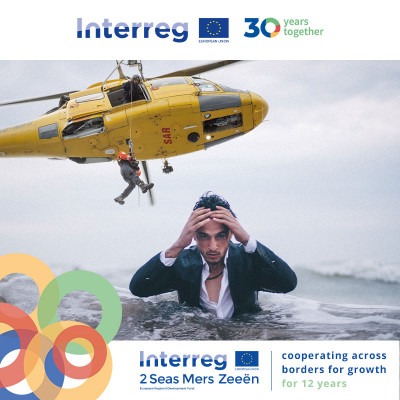30 Years of Interreg – 12 Years of Interreg 2 Seas

23/09/2020
Programme
30 Years of Interreg – 12 Years of Interreg 2 Seas
In 1990, Interreg was developed as a Community Initiative with a budget of just EUR 1 billion covering exclusively cross-border cooperation. Later, Interreg has been extended to transnational (e.g. Interreg North-West Europe) and interregional (Interreg Europe) cooperation.
In September 2008, the first Interreg 2 Seas Programme (INTERREG IVA 2 Mers Seas Zeeën Programme) was approved by the European Commission. The Programme received a budget of 167 million euro to promote cross-border cooperation between the coastal regions of 4 Member States: France (Nord-Pas-de-Calais), England (South West, South East, East), Belgium (Flanders) and The Netherlands (south coastal area).
The IVA Programme has borne fruit with 86 projects contributing to four priorities:
- Creating an economically competitive, attractive and accessible area
- Promoting and enhancing a safe and healthy environment
- Improving quality of life
- Common priority with the France (Channel) – England programme.
MIRG-EU was a project funded under the 2007-2013 programming period. Its aim was to reduce casualties and economic/environmental damage caused by incidents on passenger ships and cargo vessels. The project objective was to increase the readiness of the fire brigades by rolling out the following activities: developing of procedures, trainings and exercises. MIRG-EU facilitated cooperation, exchange of knowledge and experience between firefighters.
In June 2015, the current Interreg 2 Seas Programme was adopted by the Commission. During this 2014-2020 period, an increased ERDF envelope of 256 million euro allowed for 82 partnerships from the same 4 Member states to cooperate around one of seven Specific Objectives, clustered in 4 Priority Axes:
- Technological and social innovation
- Low-carbon technologies
- Adaptation to climate change
- Resource efficient economy
One of these projects is QUALIFY. This project aims to enable qualification of hybrid structures (metal/composite) for lightweight and safe maritime transport. Through joint research and pilot testing, the partnership, led by the Materials Innovation Institute (NL), has gained important insights to build durable, lightweight ships that can withstand heavy loads under extreme conditions.
Do you want to explore all projects that have received financial support from Interreg 2 Seas, over the last 12 years?
On the current Programme website, you will find a project output library, which promotes the actual services and products delivered by the projects funded in the 2014-2020 programming period.
